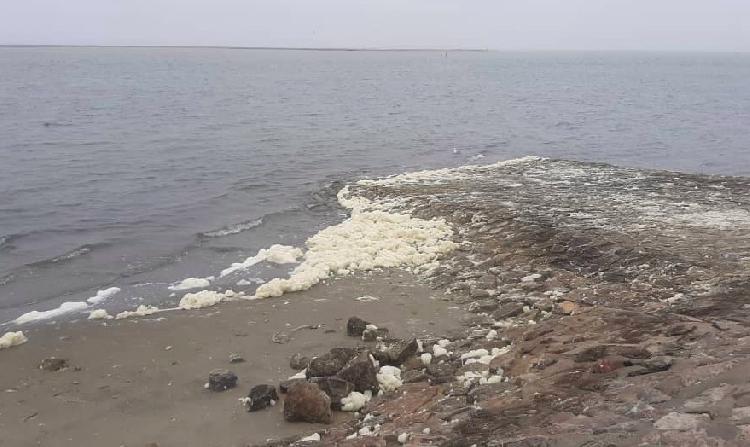Africa-Press – Namibia. THE Namibian Dolphin Project at Walvis Bay has warned beach visitors and residents of the town not to collect fish that has washed ashore.
This is as a result of a sulphur bloom that is occurring at Walvis Bay which causes low oxygen in the water, and as a result the fish are washing ashore where there is oxygen. A sulphur bloom occurs when hydrogen sulphide erupts from decaying plants on the sea floor.
Chelsea Kowalcsik who is part of the project, says the bloom can be identified by the colour of the ocean water, the sulphur (rotten egg) smell and the schools of fish that wash ashore.
She says the fish may not be contaminated but it is not advisable to consume them because it’s not clear what killed them or caused them to wash ashore.
“It’s always hard to tell, but people can accidentally pick out a fish that is sick or has been lying out for a long time. Although the likelihood of getting sick is low, it’s still risky because you can’t be sure what is wrong with the fish.”
With these sulphur blooms, sharks may be hiding in the shallow water and could end up getting stuck in tide pools, especially south of Lover’s Hill. The public is advised to report sharks stuck in shallow water to the Namibian Dolphin Project via WhatsApp to 081 687 6461, who will assist in getting them back out to sea.
The sulphur could have a potential impact on the operations of the Erongo Desalination Plant, which is operated by Orano Mining Namibia and is one of the suppliers of water to coastal towns and mines. The company monitoring the bloom, as it can damage the delicate and intricate membranes used in the desalination process.
“If the bloom is too severe, the plant will be stopped as a precaution to prevent the water from entering the system and leading to damage that can cause future delays. This ensures that this important asset is protected and any long-term water interruption due to damage is prevented proactively,” reads a statement from Orano Mining Namibia.
The company added that it is keeping NamWater updated on any changes that could have an impact on water supply in the region. “NamWater and the local municipalities will be in a position to advise the public on water usage. However, as a responsible corporate citizen of an arid country like Namibia, Orano Namibia supports public awareness on the importance of preserving this scarce resource.”
For More News And Analysis About Namibia Follow Africa-Press






